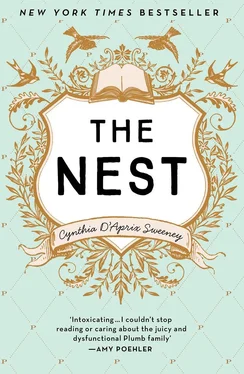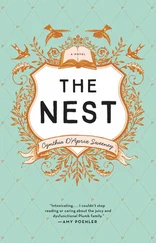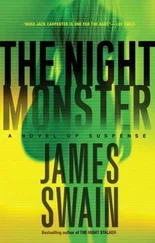The Borough Press
An imprint of HarperCollins Publishers
1 London Bridge Street
London SE1 9GF
www.harpercollins.co.uk
First published by HarperCollins Publishers 2016
Copyright © Cynthia D’Aprix Sweeney 2016
Cover layout design © HarperCollins Publishers Ltd 2017
Design by Sara Wood and Allison Saltzman. Cover image © Shutterstock.com(book)
Cynthia D’Aprix Sweeney asserts the moral right to be identified as the author of this work
A catalogue record for this book is available from the British Library
This novel is entirely a work of fiction. The names, characters and incidents portrayed in it are the work of the author’s imagination. Any resemblance to actual persons, living or dead, events or localities is entirely coincidental.
All rights reserved under International and Pan-American Copyright Conventions. By payment of the required fees, you have been granted the non-exclusive, non-transferable right to access and read the text of this e-book on-screen. No part of this text may be reproduced, transmitted, down-loaded, decompiled, reverse engineered, or stored in or introduced into any information storage and retrieval system, in any form or by any means, whether electronic or mechanical, now known or hereinafter invented, without the express written permission of HarperCollins e-books
Ebook Edition © May 2016 ISBN: 9780008165086
Source ISBN: 9780008133726
Version 2017-05-09
For my family: my parents, Roger and Theresa;
my sister, Laura; and my brothers, Richard and Tony—
who all love nothing more than a good story, well told.
There was always this dichotomy: what to keep up, what to change.
—WILLIAM TREVOR, “THE PIANO TUNER’S WIVES”
That’s how I knew this story would break my heart
When you wrote it
That’s how I knew this story would break my heart
—AIMEE MANN, THE FORGOTTEN ARM
Table of Contents
Cover
Title Page
Copyright
Dedication
Epigraph
Prologue
Part One: Snowtober
Chapter One
Chapter Two
Chapter Three
Chapter Four
Chapter Five
Chapter Six
Chapter Seven
Part Two: The Kiss
Chapter Eight
Chapter Nine
Chapter Ten
Chapter Eleven
Chapter Twelve
Chapter Thirteen
Chapter Fourteen
Chapter Fifteen
Chapter Sixteen
Chapter Seventeen
Chapter Eighteen
Chapter Nineteen
Chapter Twenty
Chapter Twenty–One
Chapter Twenty–Two
Chapter Twenty–Three
Chapter Twenty–Four
Chapter Twenty–Five
Chapter Twenty–Six
Chapter Twenty–Seven
Chapter Twenty–Eight
Chapter Twenty–Nine
Chapter Thirty
Chapter Thirty–One
Chapter Thirty–Two
Chapter Thirty–Three
Chapter Thirty–Four
Chapter Thirty–Five
Part Three: Finding Leo
Chapter Thirty–Six
Chapter Thirty–Seven
Chapter Thirty–Eight
Chapter Thirty–Nine
Chapter Forty
Chapter Forty–One
Chapter Forty–Two
Chapter Forty–Three
Chapter Forty–Four
Chapter Forty–Five
Epilogue
Acknowledgments
About the Author
About the Publisher
As the rest of the guests wandered the deck of the beach club under an early-evening midsummer sky, taking pinched, appraising sips of their cocktails to gauge if the bartenders were using the top-shelf stuff and balancing tiny crab cakes on paper napkins while saying appropriate things about how they’d really lucked out with the weather because the humidity would be back tomorrow, or murmuring inappropriate things about the bride’s snug satin dress, wondering if the spilling cleavage was due to bad tailoring or poor taste (a look as their own daughters might say) or an unexpected weight gain, winking and making tired jokes about exchanging toasters for diapers, Leo Plumb left his cousin’s wedding with one of the waitresses.
Leo had been avoiding his wife, Victoria, who was barely speaking to him and his sister Beatrice who wouldn’t stop speaking to him—rambling on and on about getting together for Thanksgiving. Thanksgiving. In July. Leo hadn’t spent a holiday with his family in twenty years, since the mid-‘90s if he was remembering correctly; he wasn’t in the mood to start now.
Cranked and on the hunt for the rumored empty outdoor bar, Leo first spotted Matilda Rodriguez carrying a tray of champagne glasses. She moved through the crowd with a lambent glow—partly because the setting sun was bathing the eastern end of Long Island an indecent pink, partly because of the truly excellent cocaine wreaking havoc with Leo’s synapses. The bubbles rising and falling on Matilda’s tray felt like an ecstatic summons, an invitation meant just for him. Her sturdy black hair was pulled away from the wide planes of her face into a serviceable knot; she was all inky eyes and full red lips. Leo watched the elegant weave of her hips as she threaded her way through the wedding guests, the now-empty tray held high above her head like a torch. He grabbed a martini from a passing waiter and followed her through the swinging stainless-steel doors into the kitchen.
IT WOULD SEEM TO MATILDA (nineteen, aspiring singer, diffident waitress) that one minute she’d been passing champagne to seventy-five members of the extended Plumb family and their closest friends and the next she was barreling toward the Long Island Sound in Leo’s brand-new leased Porsche, her hand down the front of his too-tight linen trousers, the fat of her thumb inexpertly working the underside of his penis.
Matilda had resisted when Leo first pulled her into a side pantry, his fingers cuffing her wrists while he pelted her with questions: Who are you? Where did you come from? What else do you do? Are you a model? An actress? Do you know you’re beautiful?
Matilda knew what Leo wanted; she was propositioned at these events all the time, but usually by much younger men—or ludicrously older men, ancient —with their arsenal of lame pickup lines and vaguely bigoted attempts at flattery. (She was constantly being called J. Lo in spite of looking nothing like her; her parents were Mexican, not Puerto Rican.) Even in this moneyed crowd, Leo was unreasonably handsome, a word she was quite certain she’d never employed for someone whose attention she was almost enjoying. She might think hot, she might think cute or maybe even gorgeous, but handsome ? The boys she knew hadn’t grown into handsome yet. Matilda found herself staring up at Leo’s face trying to determine which variables added up to handsome. Like her, he had dark eyes, dark hair, a strong brow. But where his features were angular and sharp, hers were round and soft. On television he would play someone distinguished—a surgeon maybe, and she would be the terminally ill patient begging for a cure.
Through the pantry door she could hear the band—orchestra, really, there had to be at least sixteen pieces—playing the usual wedding fare. Leo grabbed her hands and pulled her into a little two-step. He sang close to her ear, above the beat, his voice pleasantly lively and rich. “ Someday, when I’m awfully low, when the world is cold, I will dah-dah-dum just thinking of you, and the way you look tonight. ”
Matilda shook her head and laughed a little, pulled away. His attention was unnerving, but it also made something deep within her thrum. And fending off Leo in the pantry was marginally more interesting than wrapping asparagus with prosciutto in the kitchen, which was what she was supposed to be doing. When she shyly told him she wanted to be a singer, he immediately offered that he had friends at Columbia Records, friends who were always keen to discover new talent. He moved in again and if she was alarmed when he stumbled a little and seemed to need to keep a palm on the wall to maintain balance, her worry evaporated when he asked if she had a demo, something of hers they could listen to in his car.
Читать дальше












